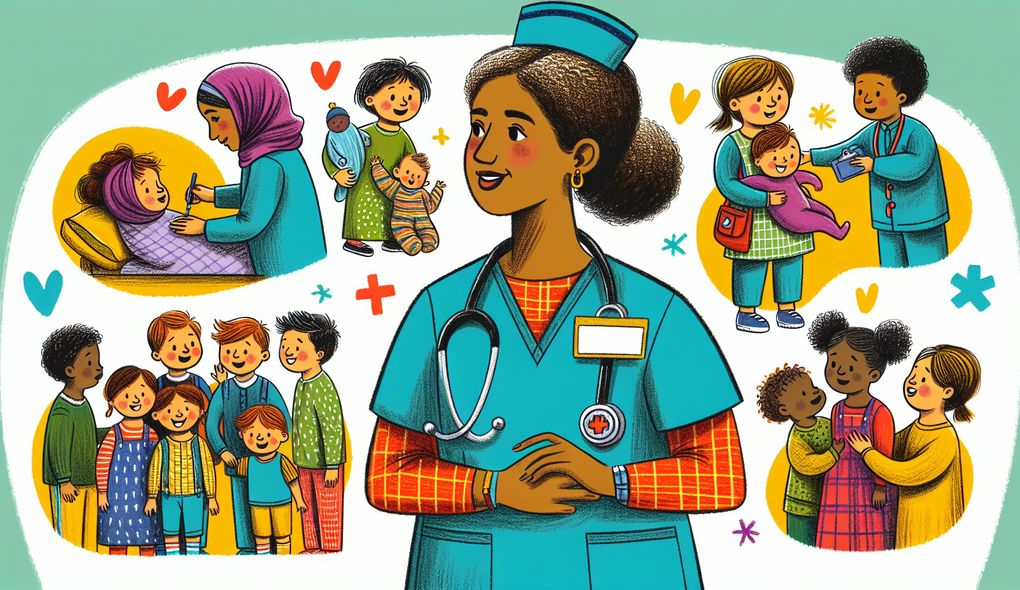Tell us about a time when you had to handle a difficult interaction with a parent or guardian of a pediatric patient.
SENIOR LEVEL

Sample answer to the question:
I had a difficult interaction with a parent of a pediatric patient when the parent was not satisfied with the care their child was receiving. The parent expressed concern about the treatment plan and questioned the competence of the healthcare team. I listened attentively to the parent's concerns and validated their feelings. I then explained the rationale behind the treatment plan and provided clear and accurate information to address their doubts. I reassured the parent that their child was in good hands and that the healthcare team had the expertise to provide the best possible care. By empathizing with the parent and effectively communicating, I was able to gain their trust and alleviate their concerns.
Here is a more solid answer:
I had a challenging interaction with a parent of a pediatric patient who was highly anxious about their child's condition. The parent was worried about the upcoming procedure and expressed skepticism about the effectiveness of the treatment plan. In order to address their concerns and establish trust, I first actively listened to the parent's anxieties and acknowledged their worries. I then provided detailed explanations about the procedure, emphasizing the benefits and potential positive outcomes. With my strong clinical knowledge, I was able to answer their questions and allay their fears. To further support the parent, I connected them with other families who had gone through similar procedures, allowing them to gain insights and reassurance. By demonstrating empathy, utilizing my expertise, and effectively communicating, I was able to successfully navigate this difficult interaction.
Why is this a more solid answer?
The solid answer goes beyond the basic answer by providing more specific details about the interaction. It demonstrates the ability to make quick and accurate clinical judgments by addressing the parent's concerns with detailed explanations and connecting them with other families who had similar experiences. Additionally, it highlights the capacity to handle stressful situations with calm and empathy by actively listening, acknowledging the parent's worries, and providing reassurance.
An example of a exceptional answer:
In my role as a pediatric nurse, I faced a challenging interaction with a parent of a pediatric patient who disagreed with the treatment plan recommended by the medical team. The parent believed that alternative therapies would be more beneficial for their child's condition and questioned the competence of the healthcare professionals. Understanding the importance of effective communication and collaborative decision-making, I invited the parent to a care conference in which all members of the healthcare team, including the parents and patient, participated. During the conference, I ensured that the parent's concerns were heard and actively listened to their thoughts and suggestions. I acknowledged their perspective and shared evidence-based information to address their concerns. Together, we reviewed the benefits and risks of the proposed treatment plan as well as the alternative therapies the parent was considering. Through open and respectful dialogue, I facilitated a consensus among the healthcare team and the parent, leading to a modified treatment plan that incorporated elements of both approaches. This experience taught me the importance of actively involving parents and guardians in the decision-making process, fostering trust, and providing holistic care tailored to the individual needs of each patient.
Why is this an exceptional answer?
The exceptional answer surpasses both the basic and solid answers by providing a more comprehensive and detailed example of handling a difficult interaction with a parent of a pediatric patient. It demonstrates exceptional skills in effective communication and interpersonal skills, the ability to make quick and accurate clinical judgments, and the capacity to handle stressful situations with calm and empathy. The candidate not only actively listens and acknowledges the parent's concerns but also takes proactive steps to involve them in the decision-making process and find a solution that satisfies both parties.
How to prepare for this question:
- Reflect on past experiences where you had to handle difficult interactions with parents or guardians of pediatric patients. Think about specific examples and the outcomes of those interactions.
- Familiarize yourself with evidence-based information regarding pediatric health conditions and treatment options. This will help you confidently address concerns and provide accurate information to parents.
- Practice active listening and empathetic communication skills. This will enable you to understand the concerns and worries of parents and respond appropriately with empathy and reassurance.
- Develop an understanding of alternative therapies and their potential benefits and risks. This will enable you to engage in informed discussions with parents who may have different viewpoints on treatment plans.
- Consider seeking opportunities to participate in care conferences or meetings where parents and healthcare professionals can openly discuss treatment plans. This will provide you with practical experience in collaborative decision-making and conflict resolution.
What are interviewers evaluating with this question?
- Excellent communication and interpersonal skills
- Ability to make quick and accurate clinical judgments
- Capacity to handle stressful situations with calm and empathy

